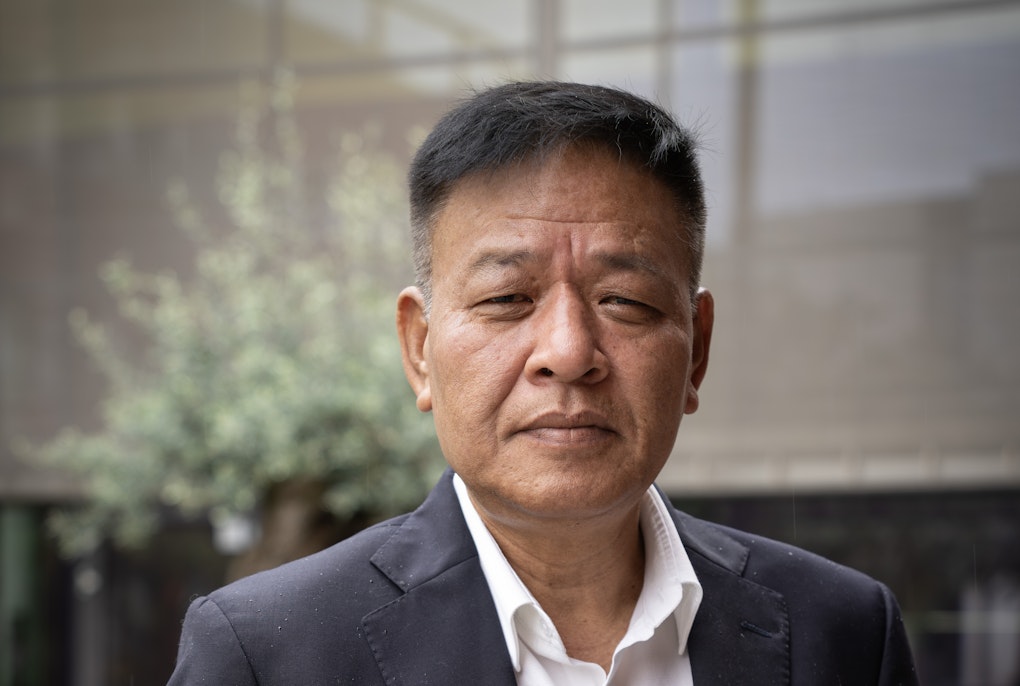magazine_ Interview
'It takes as long as it takes'
Why 'parachuted' peace agreements do not stand the test of time
Forty percent of peace agreements fail within five years of having been signed. Sergiu Constantin, a jurist at Eurac Research, and Natalia Mirimanova, a scholar and conflict resolution expert, discuss the importance of a shared peace path between the parties involved and the role of the international community. The two experts recently spoke at the summer school on human and minority rights organized by Eurac Research. 27 PhD students, government officials and professionals working for international and non-governmental organizations gathered in Bolzano to discuss autonomy-related topics.
Autonomy can be a tool for conflict prevention and resolution, but what conditions need to be in place for this to happen?
Sergiu Constantin: The smooth functioning of an autonomy depends on the interaction between the political, legal and institutional dimensions of the respective system of self-government above all. Symbolically, one can think of autonomy as a house in which the political dimension is the foundation, the legal dimension the structural pillars and the institutional dimension the roof. Autonomy, in general, is perceived as a vague legal concept and this represents both its strength and weakness. People have different conceptions of autonomy, and, in practice, there are various forms of autonomy ranging from simple cultural associations with few competences to complex territorial entities with extensive legislative, executive and judicial powers. This vagueness allows for a certain degree of flexibility, it’s also the strength of autonomy because it can be adapted to different contexts and their characteristics.
Natalia Mirimanova, you have extensive experience in the field as a mediator in peace processes, what observations can you share?
Natalia Mirimanova: From the point of view of someone who helps the parties involved in a conflict to find an acceptable solution, I would like to emphasise that autonomy is often seen as a compromise. Neither party considers it ideal. Therefore, the important thing is to find ways for autonomy to be seen by both parties as a solution that improves their mutual positions: it must be perceived as a win-win, not a lose-lose. Forty percent of peace agreements fail within five years of having been signed. This means that something may have gone wrong in the process, the way it was conducted or because there was resentment on the part of one or both sides for decisions that were not considered fair - basically, it is experienced as if there has been no reconciliation.
And how can a shared solution be reached?
Mirimanova: From the point of view of conflict resolution, the formula you find is just as important as the relationship between the parties. What is the point of having a perfect autonomy plan if the parties then hate each other and people don't talk to each other? When I work as a mediator in a process, I always prefer that the parties bring out elements of autonomy by themselves. It is not important to achieve perfection: autonomies hold up better if they are co-designed.
Constantin: The parties can have a different understanding of autonomy and talk to each other without understanding each other. That is why it is important for the parties involved to be aware of various examples of well-functioning autonomies, which can only serve as inspiration to be adapted to the context in question.
When I work as a mediator in a process, I always prefer that the parties bring out elements of autonomy by themselves. It is not important to achieve perfection: autonomies hold up better if they are co-designed
Natalia Mirimanova
What is the role of the international community in this process?
Mirimanova: We often have the image of the international expert who is parachuted into a conflict zone and drafts this wonderful strategic and implementation plan which unfortunately in the end, often does not work. Design and implementation of a post- or pre-conflict modalities of co-existence take time and commitment. Unfortunately, the system of international relations and organizations operates under a significant bureaucracy burden. The motto 'let's solve the problem quickly and celebrate' does not extend to these circumstances. But we know that the peace process can take decades. I am not being pessimistic, I just think that at times there is little commitment on behalf of the international third parties to genuinely listen to the parties beyond the most obvious circle of – usually – high-level officials and politicians, help them engage with each other in a non-violent and non-domination way. It is often believed that they do not know what they want, the thinking is 'we, the experts, know better'. Not to mention explicit or implicit self-serving agenda of various third parties.
It is difficult to find the right measure between too much and too little involvement on the part of international organizations
Sergiu Constantin
So should international organizations take a step back?
Mirimanova: It depends. In general, I would say that international organizations are not very successful, given their economic resources and political power. The likelihood of success also depends on the composition of the organizations and their mandate. Some have a structure that does not allow the flexibility, for example, to negotiate with separatists. It is always a very complex and sensitive issue. Some UN member states would not agree to sending mediators to certain territories. Some separatist groups have been labelled as terrorists, like the Kurds in Turkey, and it becomes impossible for inter-governmental organizations to engage in a fair mediation where both sides are present. This is only one part of the problem. Secondly, it is in the nature of international organizations to enact this sort of 'parachutist procedure'. They allocate money and operate from a project rather than a process perspective, they set a deadline without realizing that dialogue or peace process takes as long as it takes. Coordination and cooperation is another big issue when several organizations mediate in the same context without considering who came first or what had already been done.
Constantin: Indeed, it is difficult to find the right measure between too much and too little involvement on the part of international organizations. Of course, there are also success stories. I think it also depends a lot on the timeliness of the intervention. The likelihood of success increases if the violence has not yet erupted and if you manage to put the representatives of the opposing sides in touch by offering them strong incentives, both political and financial. It is also important to maintain involvement and support; there is no point in carrying out a one-off intervention and then abandoning the field. I am thinking of the case of North Macedonia. During the 2001 ethnic conflict, both the EU and the US promptly intervened by bringing the Albanian and Macedonian communities to the negotiating table. The country was offered a strong political incentive - the opportunity to be the first country in the Western Balkans to sign the Stabilization and Association Agreement with the EU - and a substantial financial aid package. This timely intervention prevented a full-scale war and helped the parties to negotiate and sign the Ohrid Agreement, which guarantees the Albanian minority a certain level of self-government in culture, education, language use and the use of national symbols. The EU, US and OSCE continue to monitor the implementation of the Ohrid Agreement and provide technical and financial assistance to the country.
About the Interviewed
Sergiu Constantin is a Senior Researcher at the Institute for Minority Rights of Eurac Research. He holds a law degree from the University of Bucharest (Romania) and a Master in European Studies from the University of Graz (Austria). His research projects deal with diversity governance focusing mainly on language rights, political participation, and territorial/cultural autonomy arrangements in Europe and beyond. He has published several papers, articles, and book chapters on these topics. His most recent consultancy activities regard projects undertaken by the Council of Europe and the OSCE High Commissioner on National Minorities in Ukraine and the Republic of Moldova.
About the Interviewed
Natalia Mirimanova is a conflict resolution scholar-practitioner. She has over twenty-five years of mediation, research, dialogue and peace process design, peacebuilding initiatives and advocacy experience in Russia, South Caucasus, Central Asia, Moldova, Ukraine, Western Balkans, Eastern Europe and Cyprus. Natalia received her Ph.D. from the Institute for Conflict Analysis and Resolution, George Mason University, USA. Natalia served as a consultant for various international, national and local organizations, including UN mission in Cyprus and Tajikistan, UN Regional Centre for Preventive Diplomacy for Central Asia (UNRCCA), UNDP Eurasia Regional Hub, OSCE Parliamentary Assembly and Conflict Prevention Centre, EU, Aga Khan Foundation, SIPRI, Centre for Humanitarian Dialogue and others.
Summer School on Human Rights, Minorities and Diversity Governance
The Summer School on Human Rights, Minorities and Diversity Governance is a postgraduate programme organized by the Institute for Minority Rights of Eurac Research. The two-week interdisciplinary summer school provides the opportunity to postgraduate students, civil servants, journalists, NGO workers and others interested in expanding their knowledge on human and minority rights, diversity and territorial governance. The programme has a different thematic focus each year.









